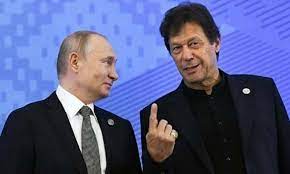
Peshawar attack shows Islamic State has come home — in arms of jihadists Imran Khan embraces
Four weeks after the Taliban confiscated Kabul, a portly cleric rose to overcome the conference of the ulama, advising them to increase the struggle to make Pakistan become an Islamic state. “They have to hide their black clothes in a shopping bag,” Muhammad’s rampage Ahmed Ludhianvi, an anti-Shiite scholar. “They will wear white on their way to their procession, and change once they get there.”
Naqvis and Taqvis this,” Ludhianvi continued, offending the Shia minority, “must record the name plate in their homes.”
Last week, Ludhianvi’s words were clarified when the Islamic State Bomb Bomb blew himself in the Shiite Mosque in Peshawar, killing at least 56 people, and injuring almost 200.
However, the problem is not the jihadist of the Islamic state. Over the years at the office, Pakistani Pertiwi Prime Minister, Imran Khan, has spoiled a distant religious, mostly silent with violence against blasphemy and religious minority. Last year, the Pakistani Tehreek-e-Insaf (PTI) government even made an agreement with the extremist of Tehreek-e-labbaik (TLP), who wanted a country ruled by sharia, after which released violence that claimed the lives of several law enforcement officials.
The Alliance of Prime Minister with religious rights might make sense, but it dragged Pakistan getting closer to the brink of sectarian warfare.
In the summer of 2014, Ibrahim Awwad Al-Badri stood at the pulpit of the historic Al-Nuri Mosque in Mosul Iraq, to express God’s command to earth: Khalifhat Islamic State is here. Among those inspired by the news was a one-time seminary student from Mamozai Village in Orakzai-Remember by his friends as a soft and pipe student, who memorized the entire Quran in just one year, married a cousin, and became a father, and Become a father, and become a father for three children. He is Hafiz Saeed Khan.
Like so much to do with Pakistan, the story of the Islamic state has originated on 9/11 – not the fall of Mosul. After the invasion of the United States to Afghanistan in 2001, Khan has lined up to defend the Taliban. After a few months, he was forced to escape from home, leaving the ruins freed from the Emirates of Islam behind him.
Facilitated by the Pakistani army, David Khattak expert has noted, the jihadists who returned from Afghanistan set up their own little Emirates. Like Khan, most of the jihadists come from family of low socioeconomic status. Watered with arms, and cash from smuggling and squeeze racquets, they swept an established tribe elite.

